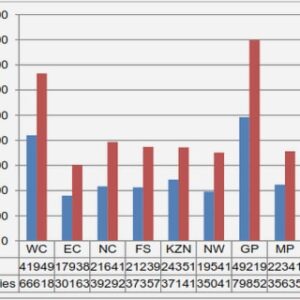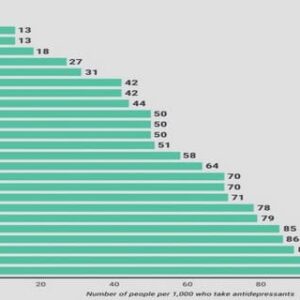(Downloads - 0)
For more info about our services contact : help@bestpfe.com
Table of contents
I Motives and means for integrating cognitive and social studies of science
1 Introduction
1.1 The social and the cognitive
1.2 Means of integration
1.3 Theoretical claims about the principles of scientific evolution
1.4 Organisation of the thesis
2 Cognitive studies of science and the social
2.1 Why integrating social and cognitive studies of science
2.2 Impediments to integration
2.2.1 Philosophers’ qualms about social determination
2.2.2 Homo-economicus, homo-scientificus
2.2.3 When foundational concerns get in the way
2.2.4 Psychology and the myth of the isolated scientist
2.3 Integrative projects
2.3.1 Cognitive history of science
2.3.2 Environmental approaches
2.3.3 The psychology of social studies
2.4 Cognitive anthropology of science
3 Integrating the Strong Programme
3.1 The Strong Programme and its attitude towards psychology
3.1.1 The symmetry principle
3.1.2 methodological relativism
3.1.3 Social theory of the Strong Progamme
3.1.4 The Strong Programme’s attitude towards psychology
3.2 Alternatives to the Strong Programme
3.2.1 rational reconstruction
3.2.2 The Bath School
3.2.3 Latour and ANT
3.2.4 Ethnomethodology
3.2.5 The practice turn
3.2.6 Distinguishing the schools of social studies of science
3.3 Naturalising epistemology: via sociology, towards psychology
3.3.1 Candidate solutions to the under-determination problem
3.3.2 Methodological individualism as a naturalistic method for epistemology
II Psychology and the history of science
4 Scientific thinking and rationality
4.1 Rationality: Mind and Culture
4.1.1 The psychologist, the epistemologist and the social scientist about rationality
4.1.2 From minds to epistemic norms
4.2 The rational foundations of relativism
4.2.1 Sperber’s rationalism and methodological relativism
4.2.2 Same world, same minds, but different beliefs
4.2.3 A naturalistic look at reasons
5 Nativism for science studies
5.1 Nativism and cognitive abilities
5.1.1 Some cognitive abilities with innate bases
5.1.2 How to characterise innateness
5.1.3 Evolutionary causal cycle: genes—neural device(s)—cognitive processes—behaviour—gene selection
5.2 Why the structure of the mind constrains the content of science
5.2.1 Against the Blank Slate
5.2.2 Science Studies without the Blank Slate
5.2.3 Science studies with theories of evolved cognitive abilities
5.3 The Odd Couple: Nativism and social constructivism
5.3.1 Compatibility between nativism and social constructivism
5.3.2 Evolutionary psychology and the Strong Programme
5.3.3 Latour against evolutionary psychology
5.4 The epistemic value of innate factors of cognition
5.4.1 Psychological reliabilism versus the evolution of credibility
5.4.2 Evolved cognitive abilities are not sufficiently reliable for science
5.4.3 Dissatisfaction with cognitive performances
5.4.4 Is there any scientific-friendly evolved cognitive ability?
6 The epidemiology of scientific representations
6.1 The epidemiology of representations—a brief account
6.1.1 A naturalistic characterisation of culture and its evolution
6.1.2 Psychology and the stabilisation of representations
6.2 The epidemiology of representations and the history of science
6.2.1 Questioning the distribution of scientific representations
6.2.2 Mechanisms distributing scientific representations
6.3 Some psychological principles of scientific evolution
6.3.1 Evaluating and routing intuitive representations
6.3.2 Factors of attraction in scientific evolution
7 A case study on mathematical cognition and history
7.1 Psychologism and the cognitive foundations of mathematics
7.1.1 Paths to psychologism
7.1.2 Where is then the norm? Strategies for avoiding psychologism
7.1.3 Considering the social aspects of mathematical production
7.1.4 Some conclusions on the historiography of mathematics
7.2 Attraction towards Newton’s fluxion
7.2.1 The number sense as a cognitive ability – brief review of the psychological literature
7.2.2 The two competing cognitive practices of the Calculus: Leibniz and Robinson versus Newton andWeierstrass
7.2.3 Why thinking with limits has been more appealing than thinking with infinitesimals
7.3 Mechanisms of distribution of mathematical representations
7.3.1 Trust-based mechanisms of distribution: Malebranche as a catalyst
7.3.2 Interests and strategic means of distribution: aiming at the institutional recognition of the calculus
7.3.3 An effect of psychological factors of attraction in the history of the calculus
7.4 Conclusion: historical analysis and cognitive hypotheses
III The cultural organisation of scientific cognition
8 Distributed cognitive systems in science
8.1 The idea of distributed cognition
8.2 Latour: Distributed cognitive systems without human minds
8.3 Giere: Distributed cognition is where the cognitive and the social merge
8.4 Nersessian: evolving distributed cognitive system
8.5 Prospects and limits of distributed cognition analyses
9 The social organisation of cognition
9.1 Emergent properties of distributed cognitive systems
9.2 Regulatory representations for distributed cognitive systems
9.3 Functional analysis of cognitive systems
9.4 Cognitive institutions
10 The evolution of cognitive systems of science
10.1 History of science and the transformation of distributed cognitive systems
10.2 How cognition culturally evolves
10.3 Minds and things in the making of distributed cognitive systems
10.4 How humans can distribute cognition
10.5 The role of trust in ascribing cognitive functions
10.6 Concluding on ANT
11 Distributing mathematical cognition
11.1 The significance of the 4-colour theorem
11.1.1 Brief history of the 4-colour theorem
11.1.2 The 4-colour theorem as food for thought for the students of mathematical knowledge production
11.1.3 Significance of the 4-colour theorem for the cognitive history of mathematics
11.2 Mathematical conjectures have cognitive appeal
11.3 Mathematical cognition as distributed cognition
11.3.1 Mathematical cognition involves non-mental representations and social interaction
11.3.2 The CSM: The cognitive system that produces mathematical knowledge
11.4 Rethinking the new 4-colour problem
11.4.1 Methodological consequences for the history of mathematics
11.4.2 How mathematicians came to trust computers
IV The exploitation of cognitive abilities and tools
12 An integrated causal model for science studies
12.1 Evolutionary epistemology
12.1.1 Blind variation
12.1.2 Selective retention
12.1.3 The layered construction of knowledge
12.2 The scientists’ mind as being massively modular
12.2.1 Science and the modular mind: why it matters
12.2.2 How massive modular minds can be flexible: proposals from a cognitive science of science perspective
12.3 How scientific cognition evolves with culture



